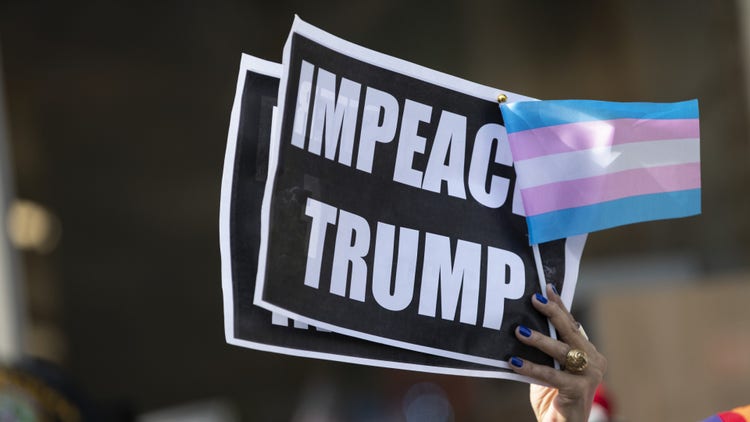
Trump rolls back transgender student bathroom protections
BY Amrit Singh / 2.23.2017
You may remember last summer when North Carolina found itself in the center of the LGBTQ debate with their “bathroom bill,” which prohibited transgender students from using bathrooms they believed to match their gender identity. I talked about it on @FactsOnly, Beyoncé talked about it in the media, and the NBA talked about it in pulling the all-star game from Charlotte.
Now it’s the President’s turn.
On Wednesday the Trump administration jumped into the debate on the federal level, issuing a two-page policy letter which rolls back protections for transgender students in public schools enacted by the Obama administration. The timing is everything: This overrules Obama’s directive from last May which stated students are protected from gender-based discrimination under Title IX (the federal law which prohibits sex-based discrimination in educational institutions), and threatened to withhold federal funds from schools who violated his order. It also comes as the Supreme Court is gearing up to hear a transgender rights case, and may well be cited by the highest court and swing their decision, in the same manner Obama’s directive had been cited by lower federal courts in upholding transgender protections.
This is a shot across the bow in the so-called culture wars, in which Republicans and Democrats debate issues of privacy, morality, and liberty and the extent to which these should be the subject of legislation.
But on a deeper level it is a debate over states rights vs. federally protected civil rights: In the absence of controlling federal law, states are left to legislate. Historically, the more federalistic and “liberal” Democratic party has been interested in using the powers of the federal government to ensure civil rights across the nation, while the more states-oriented and “conservative” Republican party has felt these issues are a matter of more local concern. (See: The black civil rights movement.)
When viewed through this prism, “liberal” and “conservative” are terms related to federal powers: Do you think they should be applied liberally, or conservatively?
Trump’s directive came over the objection of his Secretary of Education Betsy DeVos, who has voiced concern about making sure all students feel protected. “We have a responsibility to protect every student in America and ensure that they have the freedom to learn and thrive in a safe and trusted environment,” DeVos said in a statement. “This is not merely a federal mandate, but a moral obligation no individual, school, district or state can abdicate.”
DeVos was opposed by Attorney General Jeff Sessions, who has sought to push back on the civil rights expansions implemented during the previous administration, and reportedly wanted to act quickly in the face of the upcoming Supreme Court case.
Trump’s directive includes language that insists schools protect transgender students from bullying, but the LGBTQ community and civil rights activists found this cold comfort.
While individual schools may still allow transgender students to use the bathroom of their choice while the effect of this directive is debated in courts, Trump’s action represents a decidedly conservative step for a candidate whose cultural views have varied, while also reigniting a cultural debate many Republicans sought to quiet while pursuing other political agendas.
Meanwhile, the clear disagreements within the White House and Trump’s cabinet serve to underscore critics’ impressions of turbulent relations behind the Oval Office’s closed doors.
Any way you slice it: Civil rights are firmly in the crosshairs. There’s no rest in the restroom debate. Next up: The Supreme Court.